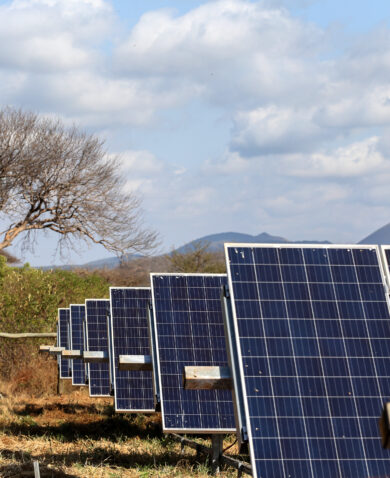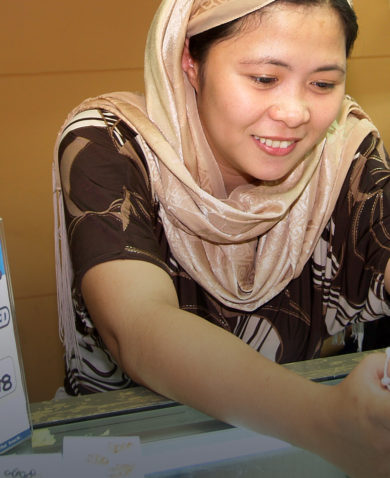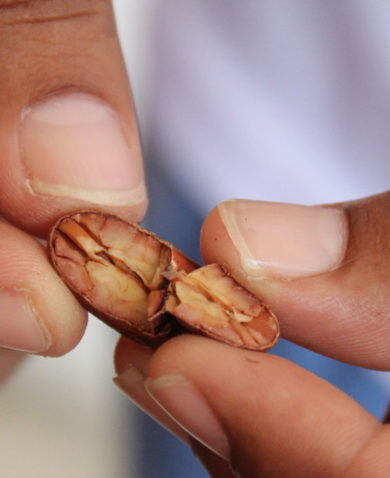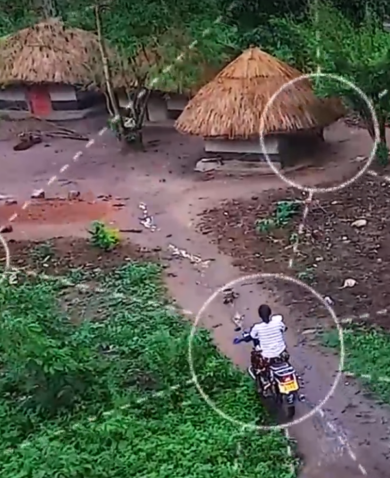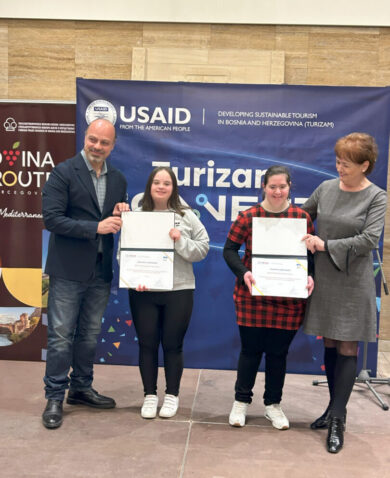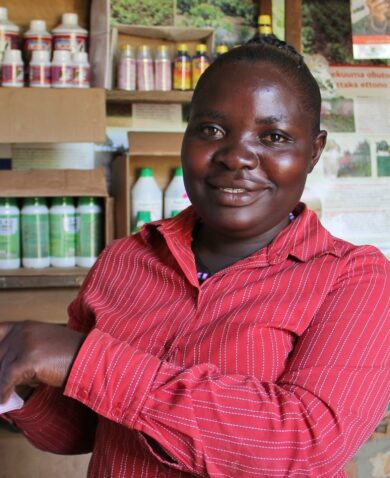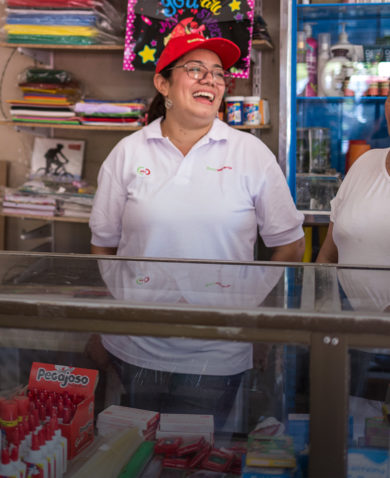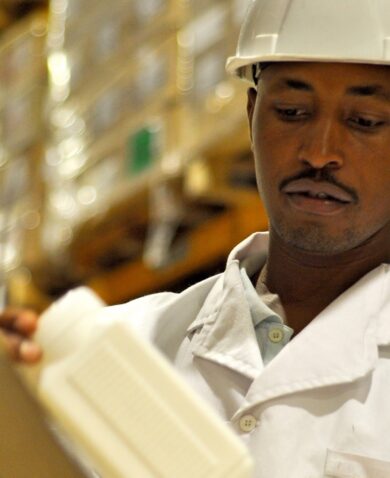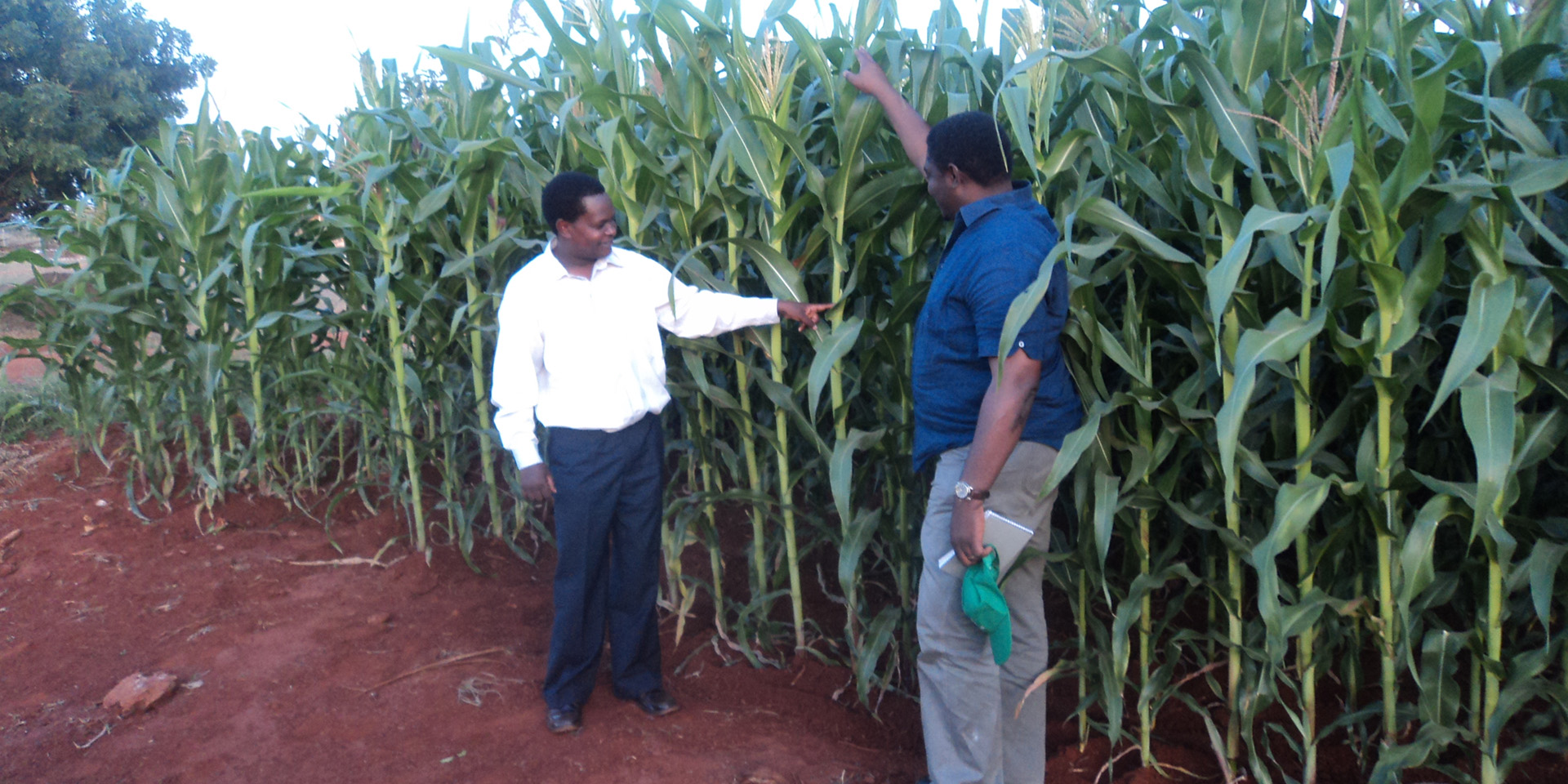
Smallholder Salvation: Promoting Crop Insurance among Smallholder Farmers in Uganda
March 31, 2016 | 3 Minute ReadCrop insurance can play a key role in increasing farmers’ access to financing for inputs and equipment — and serve as a way to gather important agricultural information.
According to USAID’s recently released “Guide to the Use of Digital Financial Services in Agriculture,” there are an estimated 1.5 billion smallholder farmers worldwide producing approximately 80 percent of the global food supply, who together face an estimated $430 billion shortfall in critical financial services that are needed to support production. In Uganda, where smallholder farmers are responsible for 70 percent of total agricultural production, the Feed the Future Uganda Commodity Production and Marketing Activity (CPM) is promoting access to financial services like crop insurance in an innovative way: by using ICT to create market linkages among stakeholders in the coffee, maize, and beans value chains.
In addition to the primary benefits of protecting the financial security of smallholder farmers from the consequences of pests, disease, climate change, and other unpredictable weather events, crop insurance is also increasingly recognized as a means to incentivize financial institutions to extend credit to smallholder farmers by reducing the risk of loan default in the event of catastrophic production losses, since insurance companies will typically insure up to 80 percent of the expected crop value in a given harvest season in exchange for a 5 percent premium, based on CPM’s recent experience working with local insurance providers. Crop insurance is therefore one of the critical linchpins in the financial ecosystem to ensure smallholder farmers in Uganda can secure financing to cover the cost of inputs, agricultural equipment, and postharvest handling services.
The connection between crop insurance and access to finance is demonstrated by a recent success story of one of CPM’s beneficiaries, the Kyazanga Farmers’ Cooperative Society in the Lwengo district of central Uganda. Had they not been required to secure crop insurance when seeking a production loan from the Uganda Development Bank (UDB), the Kyazanga farmers would have had no recourse when their crops later sustained heavy damage from floods. Fortunately, the farmers were able to recoup up to 70 percent of lost production value through the insurance policy, mitigating the impact of the disaster and making them more financially resilient in the face of hardship.
The challenge is that these benefits are not widely known among smallholder farmers, and even for those who are aware of the benefits, the cost of the insurance premium is often a barrier. CPM is addressing these challenges by working through its local partner, Akorion Company Limited. As described in a previous blog post by CPM’s Deputy Chief of Party Robert Anyang, Akorion is Ugandan firm led by youth entrepreneurs who provide innovative information and communications (ICT) solutions for agriculture. With support from CPM, Akorion has developed an integrated digital platform that uses mobile technology to collect biographical information on smallholder farmers and connect them to a range of digital financial services, including crop insurance and production loans, the latter of which can be used to cover the insurance premium payment. Akorion has equipped a network of 400 village agents with smartphones and profiled more than 40,000 farmers through its mobile application, collecting information including crop type, land area, and expected production value.
What’s interesting is that this process not only provides economic opportunities for village agents, many of whom are youths, who earn commission for each farmer profile, but also provides a means by which to share information that is valued by other stakeholders in the digital financial services ecosystem, including potential insurance providers that can access farmer profiles for a nominal fee to assess the risk of a given smallholder farmer and determine appropriate insurance coverage.
Besides capturing data that might otherwise be too costly for insurance companies to acquire, Akorion’s network of village agents also serves as a built-in sales force for insurance providers, having thus far trained 120 to become licensed crop insurance agents who can market insurance products, assess and document risks, and inspect crops during the harvest period to track production and substantiate any subsequent claims made by smallholders against their insurance policy. In fiscal year 2016, CPM will work with Akorion to expand its crop insurance agent network to a total of 600 village agents, and increase the total number of farmers accessing crop insurance from 1,283 as of September 2015 to a total of 8,000.
With a plan to subsidize crop insurance policies currently pending approval by the Ugandan parliament, the hope is that CPM can have a significant impact on building a private sector led crop insurance market, enabled in part by the Akorion platform, that can ensure that the story of the Kyazanga Farmer’s Cooperative Society can become the norm, rather than the exception.











